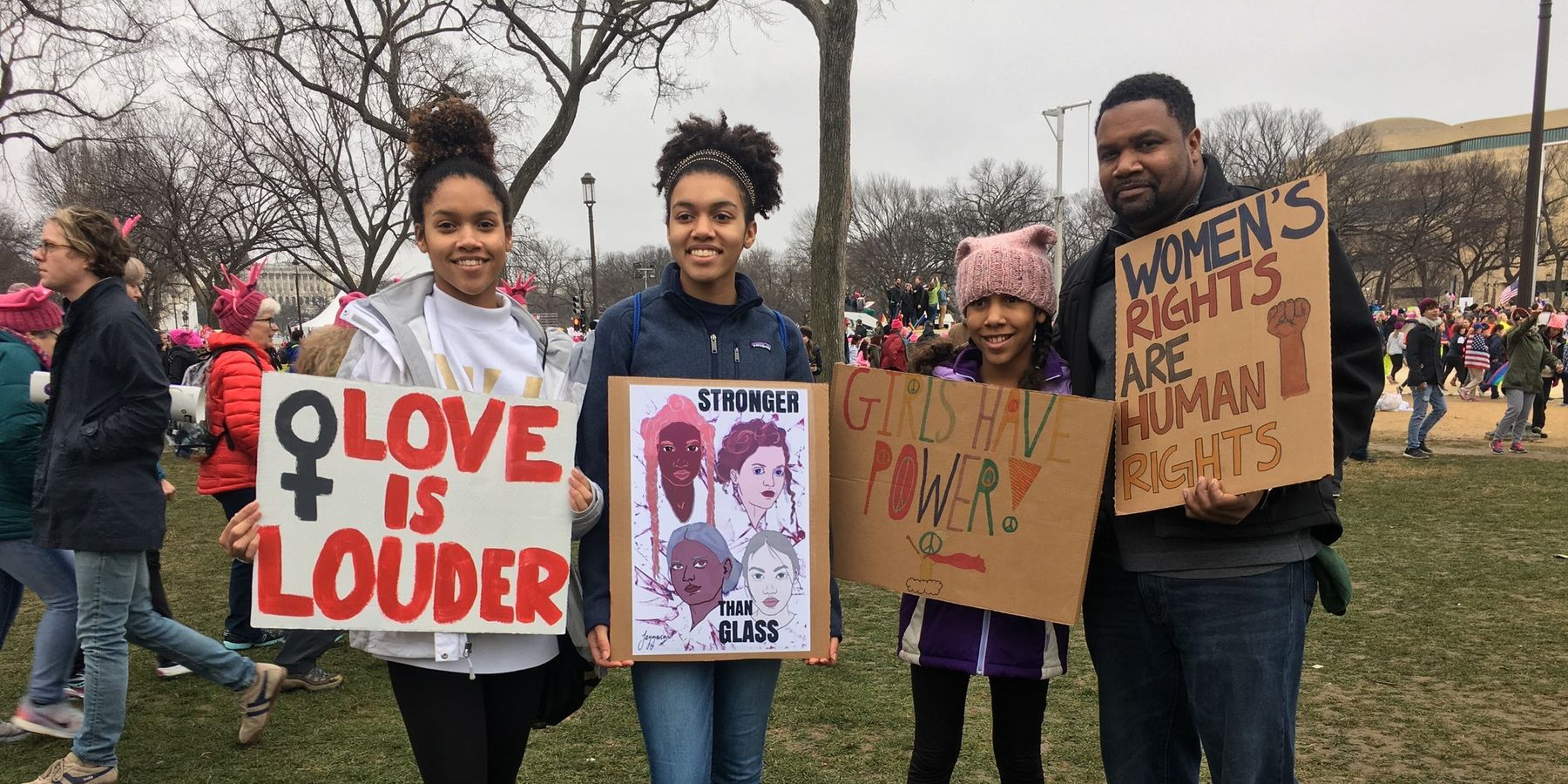
Why We March: 18 D.C. Protestors on Donald Trump, Women's Rights, and Changing the Future
By Claire Valentine and Trupti RamiJan 23, 2017

On January 21, one day after President Donald Trump took the oath of office, hundreds of thousands people filled the streets of Washington, D.C., for the Women's March. With pink "pussy" hats, protest signs, banners, flags, and rhymes in tow, people of all ages marched and chanted and sang in solidarity. The assembly was three times larger than Trump's inauguration by one estimate and likely surpassed half a million attendees—far more than the 200,000 expected (not to mention the 616 sister marches across the U.S. and internationally that also brought out hundreds of thousands of attendees).
A rally on the southeast corner of the National Mall started the day with a host of speakers, including Gloria Steinem, Janelle Monáe, Scarlett Johansson, activist and author Janet Mock, and many more. Steinem called for unity, saying, "We are linked, we are not ranked, and this is a day that will change us forever because we are together, each of us individually and collectively will never be the same again." Referencing her recent Golden Globe-nominated film Hidden Figures and echoing her 2015 single, "Yoga," Monáe reminded us to choose freedom over fear: "Women will be hidden no more. We will not remain hidden figures. We have names. We are complete human beings, and they cannot police us, so get off our areolas. Get off our vaginas."
Marchers who were out of earshot celebrated anyway as the waves of cheers rolling through the crowd reached them. "It's wonderful. Nobody ever knows quite what they're cheering for but there's such energy," said Rachel Merriman-Goldring, 21, from Arlington, Virginia, who came with a group of friends from William and Mary. For her and her friends, making sure the Women's March was an intersectional place was particularly important. "It's not just about liberation for white women; it's about liberation for all women. Queer women, trans women, black women, Latina women, Muslim women, poor women, fat women," said Merriman-Goldring. "I've been happily surprised by how intersectional it has been, and how many different identities are [not only] represented but also being talked about on signs and in speeches."
Photo by Trupti Rami
James Cox with his daughters Jazzmin (15), Kailyn (10), and Alani (13), Maryland
Why he's marching: "I have three daughters and I've been following the election closely from the get go, and a lot of things were said by Trump that I was just disgusted by. I wanted to come here and show solidarity in terms of equal rights and equal treatment and to send a message. All three of my daughters are here with me today. We all made signs and we all decided we were going to show up as a family to show our support. It's been a very good, overwhelming feeling, and hopefully the girls are going to walk away with something very powerful when this is all said and done. Just seeing people out here, a lot of families. You can feel the energy."
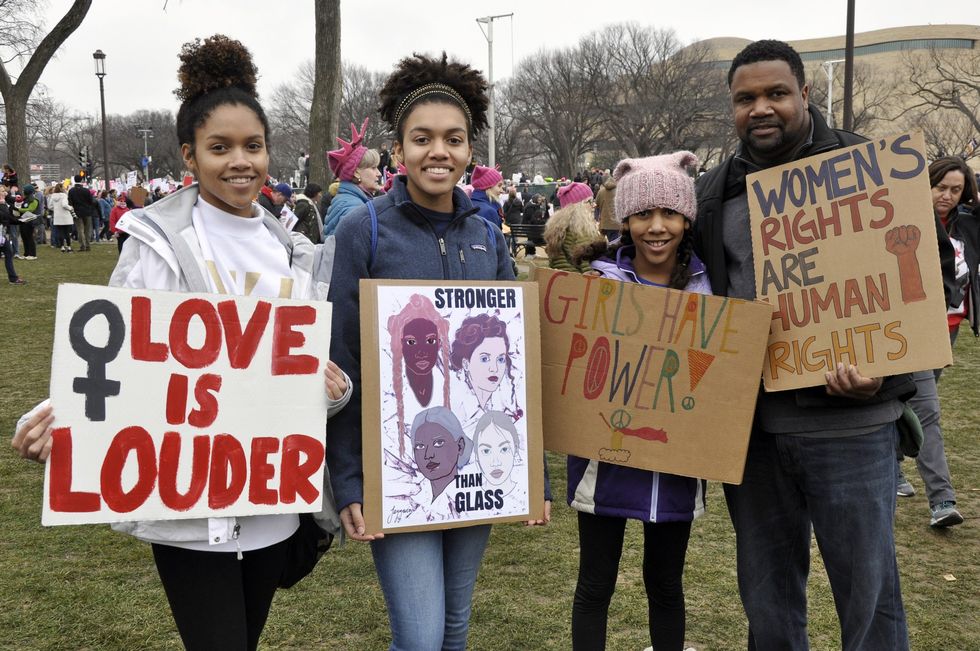
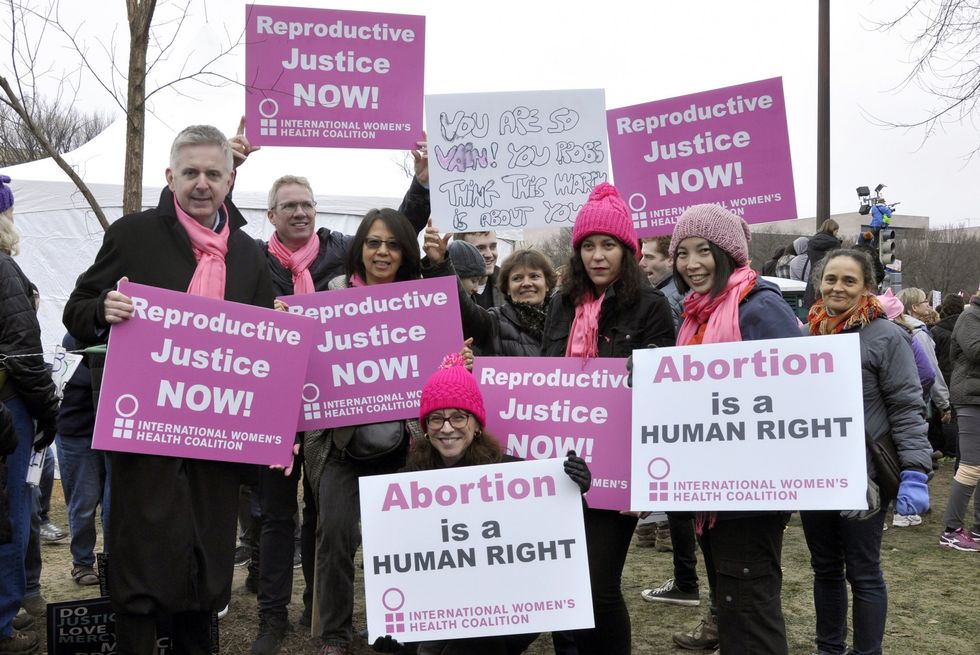
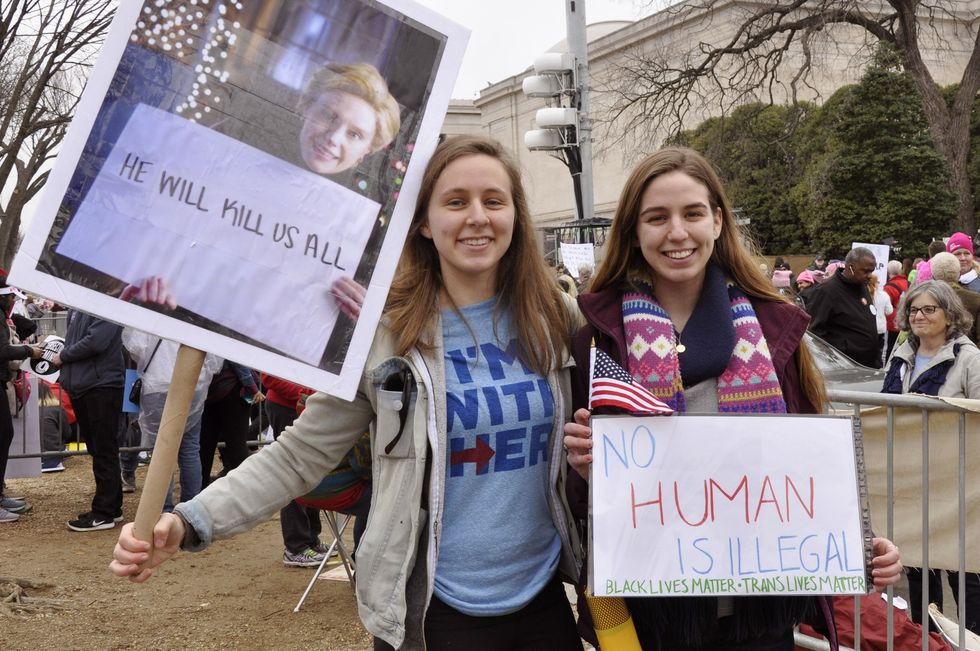
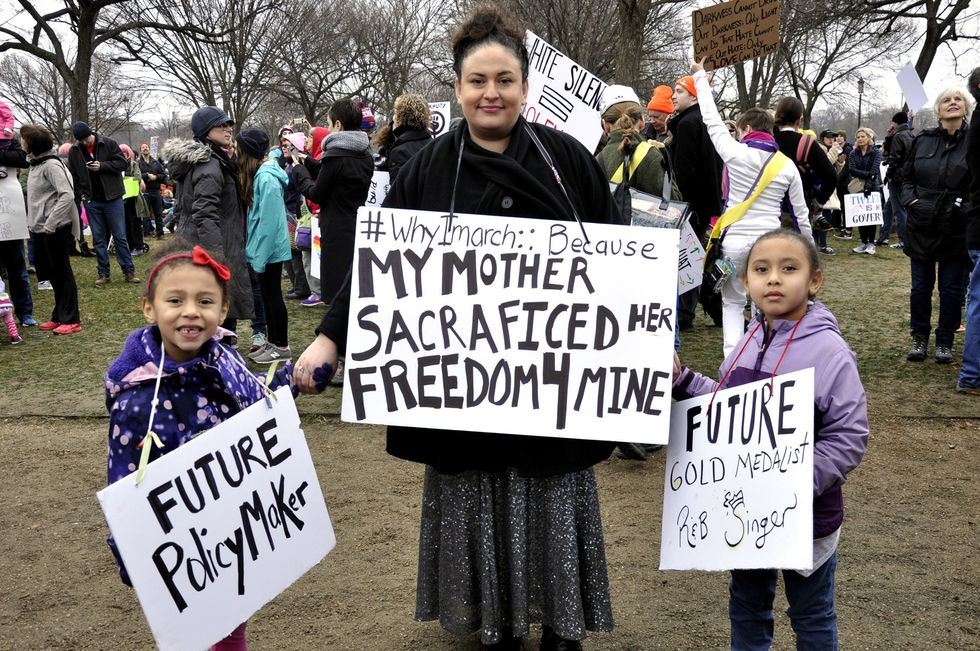
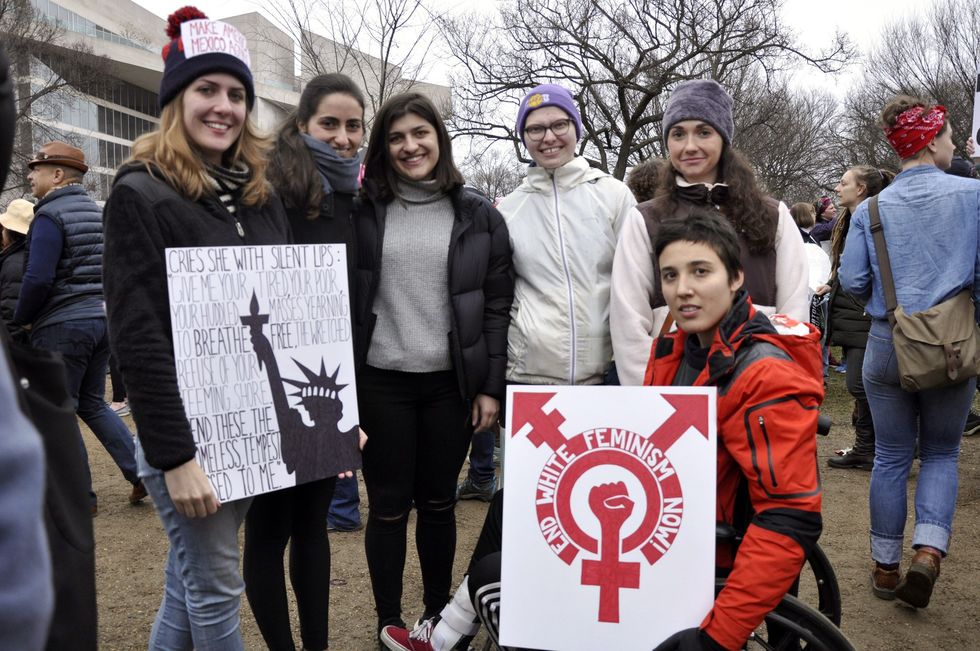
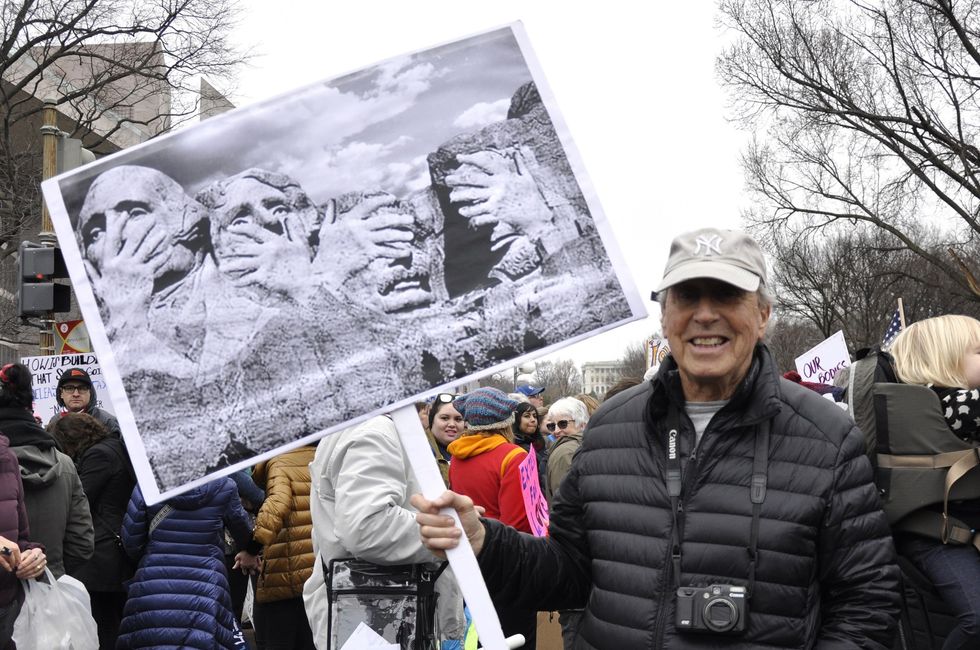
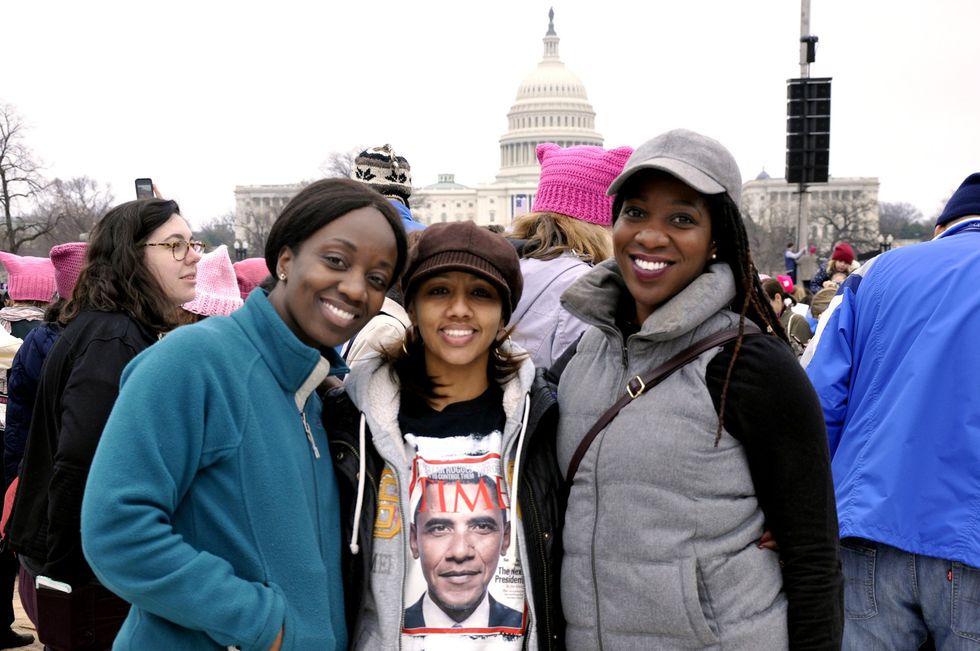
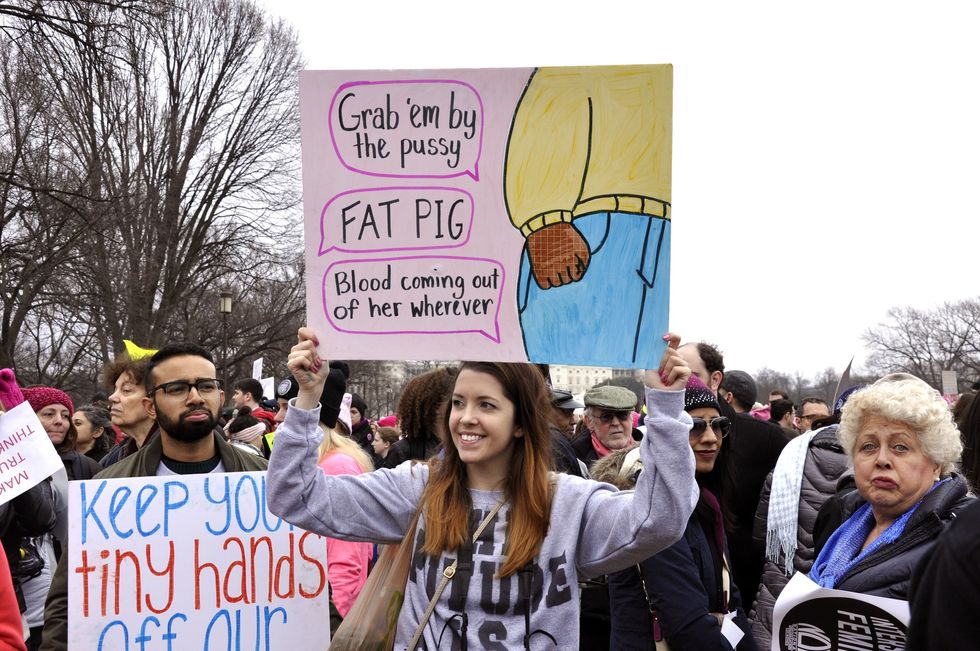
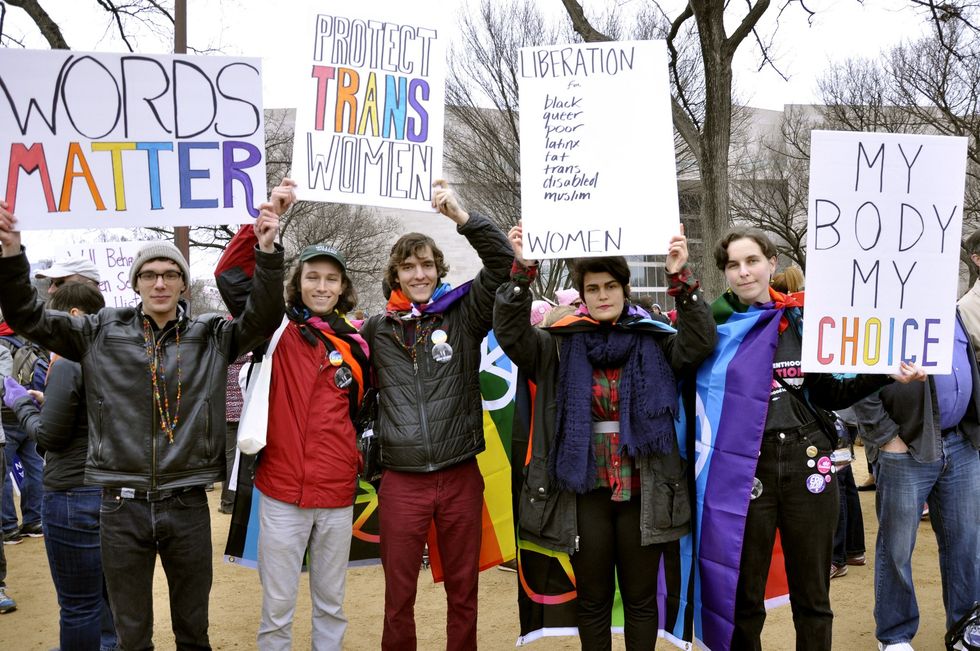
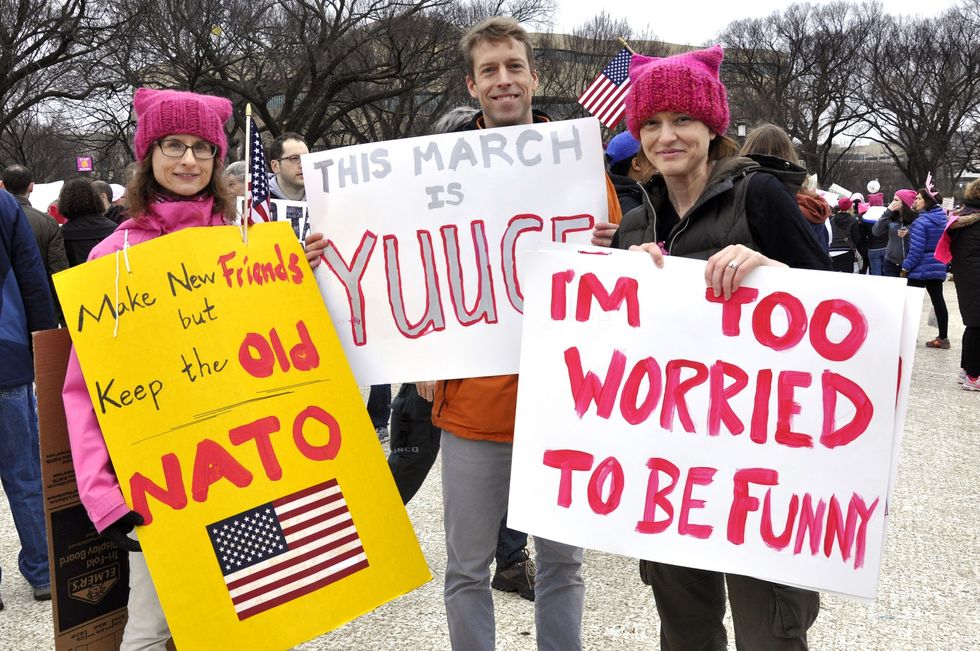
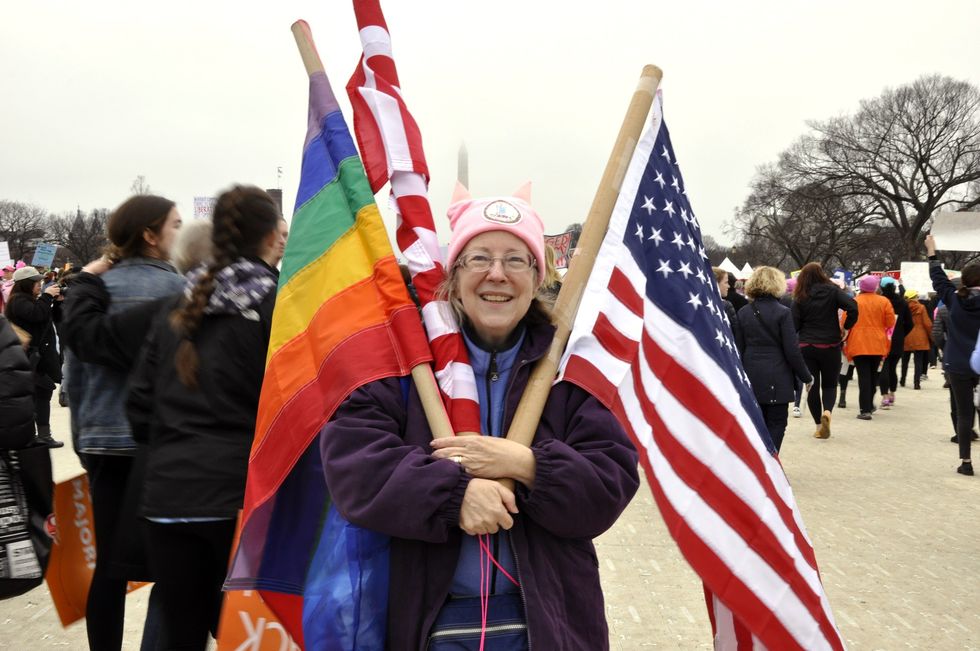
Francoise Girard, the president of the International Women's Health Coalition, which advocates for sexual and reproductive health and rights globally, commented on the joyful mood of the pink-hat-clad marchers. "We have all kinds of hats," she said, "some pom pom hats, some pussy hats. We're all joined in the spirit of the march. It's serious, and people are very concerned and rightly so, but it's also playful, it's also fun. You can see the creativity and the imagination and the diversity and the color and the beauty of this march."
As Trump enters office with the lowest approval rating of any president before him, some marchers worried about the impact of his campaign rhetoric and the image he now presents to the world as president.
"It was quite ugly—some of what was said, some of what was done [during the presidential campaign]. I am concerned that gives permission to continue that level of hatred," said Marie Cetoute, 31, from Alexandria, Virginia. "[He] is not the individual who represents our country and who represents us, but yet he is literally the face of our country. It's such a misrepresentation of our country. This is a representation of our country. When you look around, the range of people, the different background and experiences, and what we're passionate for. [It] could be very similar or very different, but either way it comes from a place of togetherness and [is] more loving and supportive, which I think it's much more powerful."
James Cox, there with his wife and three daughters ages 15, 13, and 10, said that he was disgusted by President Trump's campaign rhetoric and wanted to send a message not only to the new administration, but to his daughters. "I wanted to come here and show solidarity in terms of equal rights and equal treatment," he said. "All three of my daughters are here with me today. We all made signs and decided we were going to show up as a family to show our support. It's been a very good, overwhelming feeling, and hopefully the girls are going to walk away with something very powerful."
Throughout the day, groups of marchers would start chants. Some were call-and-response: "Tell me what democracy looks like." / "This is what democracy looks like." Others played on words and took aim at the president and vice-president. One group of women, mostly from Smith College, chanted, "Can't build a wall. Hands too small." And then, "Build a fence, around Mike Pence."
The galvanized group of friends, while proud to be part of the historic day of resistance, noted that the march was only the beginning of the work that needs to be done. "In every movement a march builds momentum, but it actually doesn't change any policy or anything," said Lucie March, 24. "The most important thing is what people will do when they go home. This kind of march is so powerful that it will really give them momentum."
Her friend Sabina Frizell nodded, adding, "It's a symbol that will hopefully inspire people on a daily basis."
By the time the march was set to start at 1:15 p.m., pathways were at a standstill with the sheer number of attendees making actual marching virtually impossible. People perched up above in trees and even on stoplights acted as scouts, calling down updates and directions to the swelling crowds below. Marchers eventually began moving towards the White House and Washington Monument, both along the original march route along Independence Avenue, as well as parallel streets, the Mall, and Pennsylvania Avenue.
The President, who spent much of his first day in office complaining to intelligence agencies about the media's portrayal of the historically sparse crowds at his inauguration, did finally acknowledge the women's march and the people's right to protest but, notably, almost two hours after his initial Twitter response asking why marchers didn't vote and calling out celebrity involvement.
Watched protests yesterday but was under the impression that we just had an election! Why didn't these people vote? Celebs hurt cause badly.
— Donald J. Trump (@realDonaldTrump) January 22, 2017
Peaceful protests are a hallmark of our democracy. Even if I don't always agree, I recognize the rights of people to express their views.
— Donald J. Trump (@realDonaldTrump) January 22, 2017
On January 22, (coincidentally, the 44th anniversary of Roe v. Wade) the Women's March organizers celebrated the success of the protest and announced a new campaign to activate people for the first 100 days of Trump's presidency. Here's the announcement: "We did it! On January 21, over 5 Million of us worldwide and over 1 Million in D.C., came to march, speak and make our voices heard. But it doesn't end here -- now is not the time to hang up our marching shoes -- it's time to get our friends, family and community together and make history. That's why we're launching a new campaign: 10 Actions for the first 100 Days. Every 10 days we will take action on an issue we all care about, starting today."
Splash photo by Claire McCartney